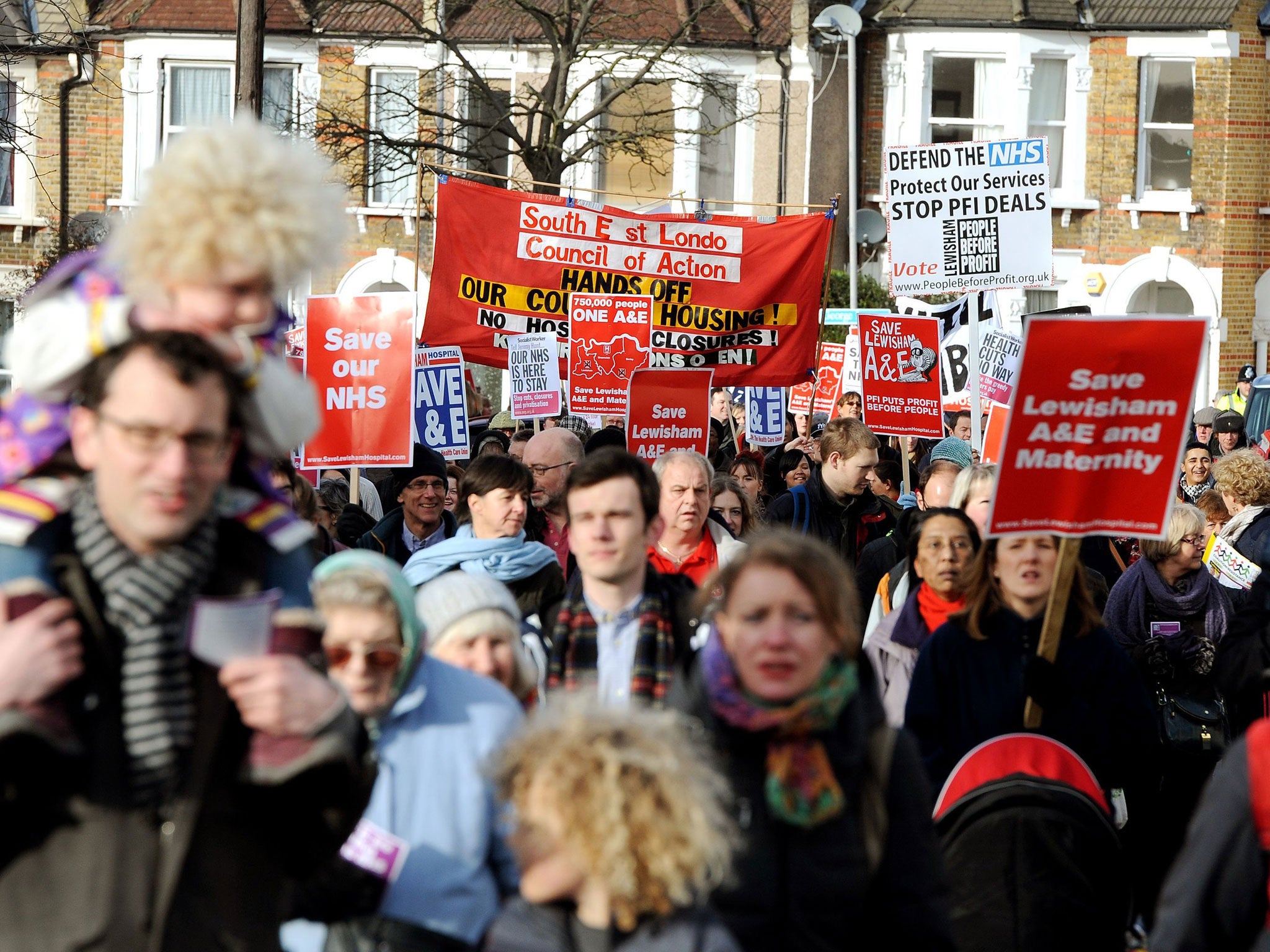Embattled Lewisham A&E gets a stay of execution as Jeremy Hunt shies away from closure

Jeremy Hunt fudged a key decision on the future of a London hospital accident and emergency department today - but signalled a potential revolution in the provision of accident and emergency services across England.
The health secretary wrong footed critics when he announced the partial downgrading of the A&E unit at Lewisham hospital, south London, to help rescue a neighbouring trust from bankruptcy. He had been expected either to save the unit or close it.
Lewisham would become a second rank A&E department, treating up to three quarters of the cases currently seen, with more serious cases sent to first rank A&E departments at Kings College, St Thomas’s, Queen Elizabeth, Woolwich and Princess Royal, Bromley, Mr Hunt said.
The decision followed advice from NHS medical director Sir Bruce Keogh, who is heading a review into A&E units nationally which is considering a health department proposal for a two tier emergency service. Details of the plan for Lewisham and neighbouring trusts have yet to be spelt out but appear to represent the first moves to implement a two tier arrangement.
The announcement, which included the downgrading of the maternity department at the hospital to be midwife-led, provoked anger from unions and opposition MPs who accused Mr Hunt of putting cost savings before clinical care. Ed Miliband said it was driven by the “wrong priorities.”
“We think it’s the wrong thing to do because it is not driven by clinical needs, it is driven by cost pressures. Any changes in hospitals must be justified on medical grounds - not simply on the basis of cost saving as we are seeing at Lewisham,” the Labour leader said.
But it was a partial reprieve for the hospital, after the special administrator appointed to sort out the neighbouring South London NHS Trust, which is running up debts at a rate of £1.3 million a week, proposed that the A&E department at Lewisham should be closed and replaced with an “urgent care unit”.
That proposal was seen as deeply unfair to Lewisham, a successful trust, and triggered a grassroots backlash with 15,000 local residents marching in support of the hospital last weekend.
Acknowledging the protests in the Commons today, Mr Hunt said to ensure NHS reconfiguration decisions improved safety, he had asked Sir Bruce Keogh to examine the clinical implications of closing Lewisham’s A&E.
Sir Bruce warned it would disadvantage local residents, especially the frail and elderly, and recommended a smaller A&E unit, open 24 hours a day and with senior consultant cover, should be retained at Lewisham.
Accepting the recommendation, Mr Hunt said the slimmed down A&E would see “up to 75 per cent” of the patients currently treated compared with the 50 per cent the special administrator calculated would attend an urgent care unit.
The decision was condemned as a fudge after the health secretary said his compromise solution would increase costs but would only “marginally” increase the financial risk. The health department put the extra cost at £2 million a year.
Julia Manning, chief executive of the think tank 2020 Health, said: “Mr Hunt is delaying the inevitable and costing the taxpayer more. Sentimentality and politics have left us with a solution that is unsustainable and will have to be revisited yet again in the future”.
Sir Steve Bullock, Mayor of Lewisham, said the council was taking legal advice on applying for judicial review. “The Secretary of State is riding roughshod over the people of Lewisham. These plans have been roundly rejected by local people, by the staff who work in the hospital and by local GPs. This is not the end of the matter,” he said.
Chris Ham, chief executive of the Kings Fund said “‘South London Healthcare NHS Trust has longstanding and serious financial problems so no change is not an option. With a number of other trusts also facing serious financial challenges, it is vital that these problems are resolved before it becomes necessary to invoke the failure process. This will require stronger political leadership than we have seen in the past.”
Join our commenting forum
Join thought-provoking conversations, follow other Independent readers and see their replies
Comments